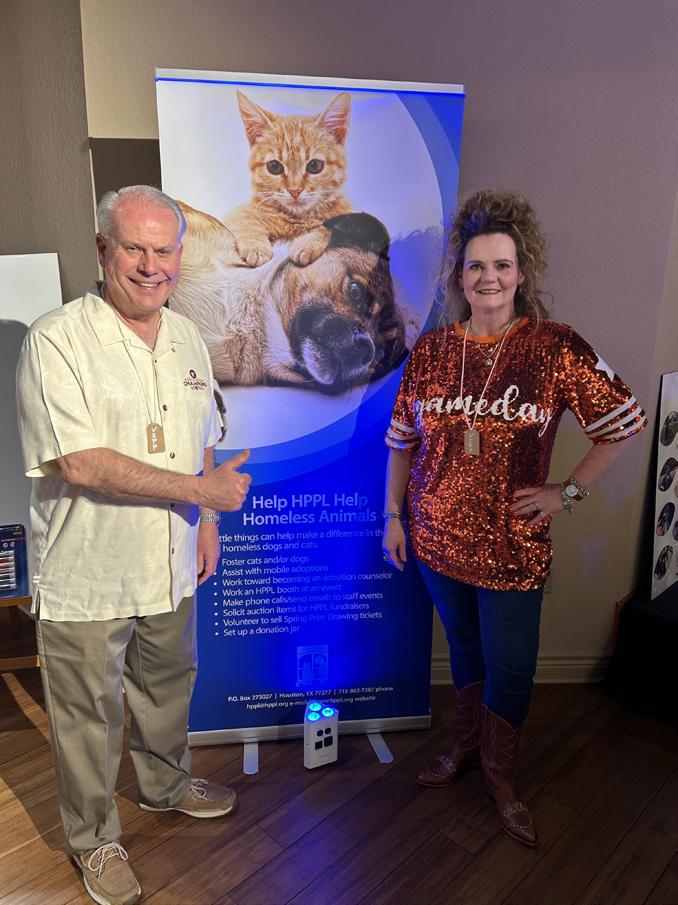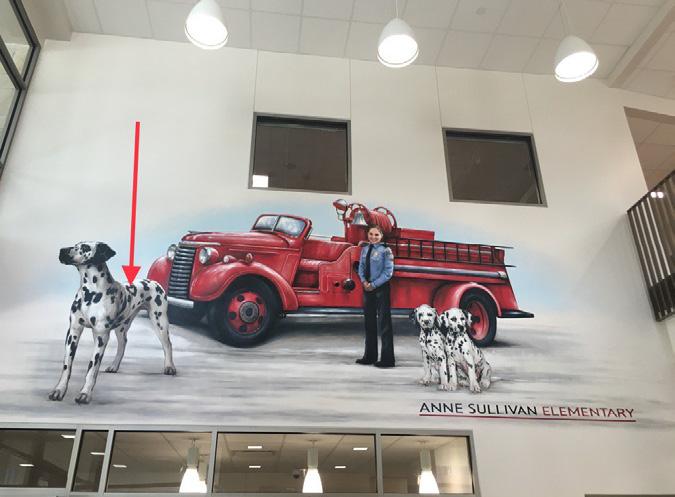
2 minute read
Houston Methodist Sugar Land Now Offering Incisionless Surgery to Treat Swallowing Issues
Patients with a disorder of the esophagus that makes swallowing difficult now have a local option for advanced endoscopic surgery that can provide relief.
Houston Methodist Sugar Land Hospital surgeon Aman Ali, M.D., recently performed the first-ever peroral endoscopic myotomy (POEM) procedure in Fort Bend County to treat a patient with achalasia, a disorder caused by nerve damage to the esophagus. People with achalasia have difficulty swallowing food and liquids and often will regurgitate undigested food. Without treatment, achalasia becomes progressively worse and can be life-threatening, because it increases the risk of choking or pneumonia from aspiration of food into the lungs.
Advertisement
The traditional treatment for achalasia is a surgical procedure called Heller myotomy, which involves multiple incisions on the abdomen. The POEM procedure is a non-invasive approach to esophagogastric myotomy, using a flexible endoscope inserted through the mouth into the esophagus. Once in place, the physician makes an incision in the esophageal mucosa, which is the inside layer of the esophagus. Then, through this incision, a submucosal tunnel is created to expose the tight lower esophageal sphincter muscle. The surgeon then cuts this muscle at the lower esophageal sphincter, which is called a myotomy, making it easier for food and liquid to pass through.
“Because we aren’t making incisions to the skin and muscles in the abdomen and chest area, the patient heals more quickly and has less post-operative pain,” Ali said. “It’s a more effective approach to treating achalasia than traditional open Heller myotomy or even minimally invasive laparoscopic Heller myotomy.”
Patients typically spend one night in the hospital and undergo a swallow study before being released.
Ali’s patient for that first procedure was 79-year-old Beatrice Pickard of Friendswood, whose achalasia had progressed to the point where she couldn’t eat or drink anything without vomiting.
“I was really sick, but I was afraid of having surgery,” Pickard said. “When I saw Dr. Ali for the first time, he immediately put me at ease. He really listened to me and didn’t dismiss my symptoms. I felt very comfortable with him, especially because he took the time to explain how the procedure works and what I would experience.”
Pickard’s procedure was successful and following a short hospital stay, she returned home. “I never had any pain of any kind,” she said. “It was easy.”
After surgery, Pickard was on a liquid diet for several weeks and has now progressed to a soft diet. After her next follow-up visit, she expects to be back to eating solid foods.
Prior to the introduction of POEM to Houston Methodist Sugar Land Hospital, patients would have to travel to the Texas Medical Center for the procedure. Now, Ali plans to use POEM to treat both achalasia and another condition called gastroparesis, which affects the stomach’s ability to empty properly.
“This is an advanced treatment that has direct benefits to the patient,” Ali said. “Our operating room and endoscopy teams have worked hard to make it possible for us to offer this procedure here at Houston Methodist Sugar Land, and we plan to utilize it whenever possible to help local patients improve their quality of life.”

Pickard said she would recommend Houston Methodist Sugar Land to anyone who is struggling with achalasia. “Trust your body,” she said. “It’s telling you something is wrong and you need to find someone who can take care of you. If it weren’t for Dr. Ali, I would still be having trouble.”
To schedule an appointment with Dr. Ali, call 281.275.0211. Visit houstonmethodist.org/sugarland to learn more about Houston Methodist Sugar Land Hospital.










